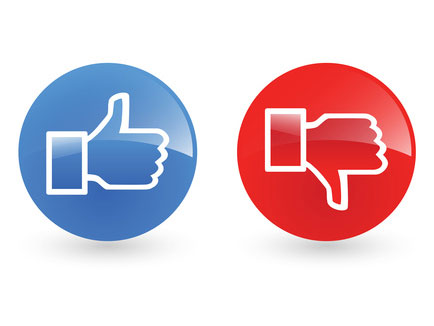The title is quite descriptive in itself. This article is about Facebook, a free and extremely popular social networking site and how it affects our perception of the need to set up and maintain a costly website. So, let us see. How many of you have Facebook accounts? Oh, let me revise that. How many of you don’t have Facebook accounts?
Doubtless, Facebook has grown big from its humble beginnings in Mark Zuckerberg’s dorm. With an Initial Public Offering valued at over $104 Billion, the biggest so far in internet history, it has an estimated 900 million users around the world as of April 2012. With these figures alone, the scales in our article match-up are heavily in favor of Facebook. Add to that the fact that a 2011 market research on established brands in the United States found an alarming drop on domain visits, compared to a consistent growth on visits on the companies’ respective Facebook pages. Hands-down, Facebook wins, right?
To think, Facebook has, among other things, the following advantages:
- It is easy to start your Facebook page, and simple to maintain.
- It is operating under a social environment: Fans will get updates on their news feeds; potential clients get to see what your company is offering, maybe share a picture of your premium products over their own walls, and get the word-of-mouth ball rolling.
In a way, it is cool and trendy, not unlike a seasoned actor turned politician, very popular, very good in speeches and promises especially during campaign season. But like voting for a sincere actor turned inexperienced politician has its risks, relying solely in Facebook has its own pitfalls. For one, you’ll be forced to be overly dependent on the Facebook management: the way they change the look of Facebook would have a direct effect on how your potential clients view your company. You have limited control on the extent and functionality of the site. You have no way of enhancing user experience beyond the existing tools provided by Facebook itself. And ever thought of those “Terms and Conditions” you agree before you create a Facebook account, and all the legalities that come with it? Not discounting the fact that not all people use Facebook, and the chance that over time, Facebook may lose its popularity and thus, it’s marketing power.
Which brings us to this point: Facebook should be treated as just another way of communicating with potential clients; it should NOT be treated as a substitute for a well-maintained company website.
View the social networking site as another face of your online advertising plan. Start by having your Facebook page linked to your official website. Feature pictures of new items or premium services your company is offering, maybe even create Facebook mini-competitions that require Facebook subscribers to scour your official company website for clues that will eventually allow them to win prizes.
The trick here is to make your Facebook page a useful tool of generating interest on your products and or services. Make it another gateway, popular as it is now, towards your company. For if you choose to shut down your official company website, limiting yourself in Facebook, you risk on decreasing your presence in the World Wide Web. Less presence, less potential clients. Less potential clients, more lost sales, greater opportunity cost. You do the math, and I’ll rest my case.
